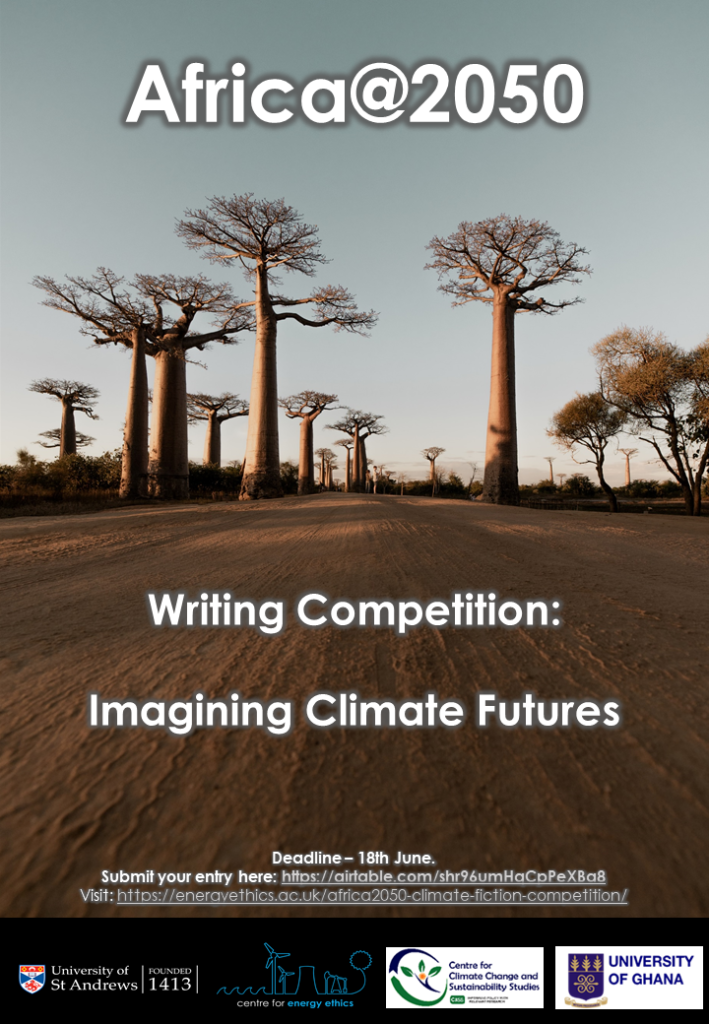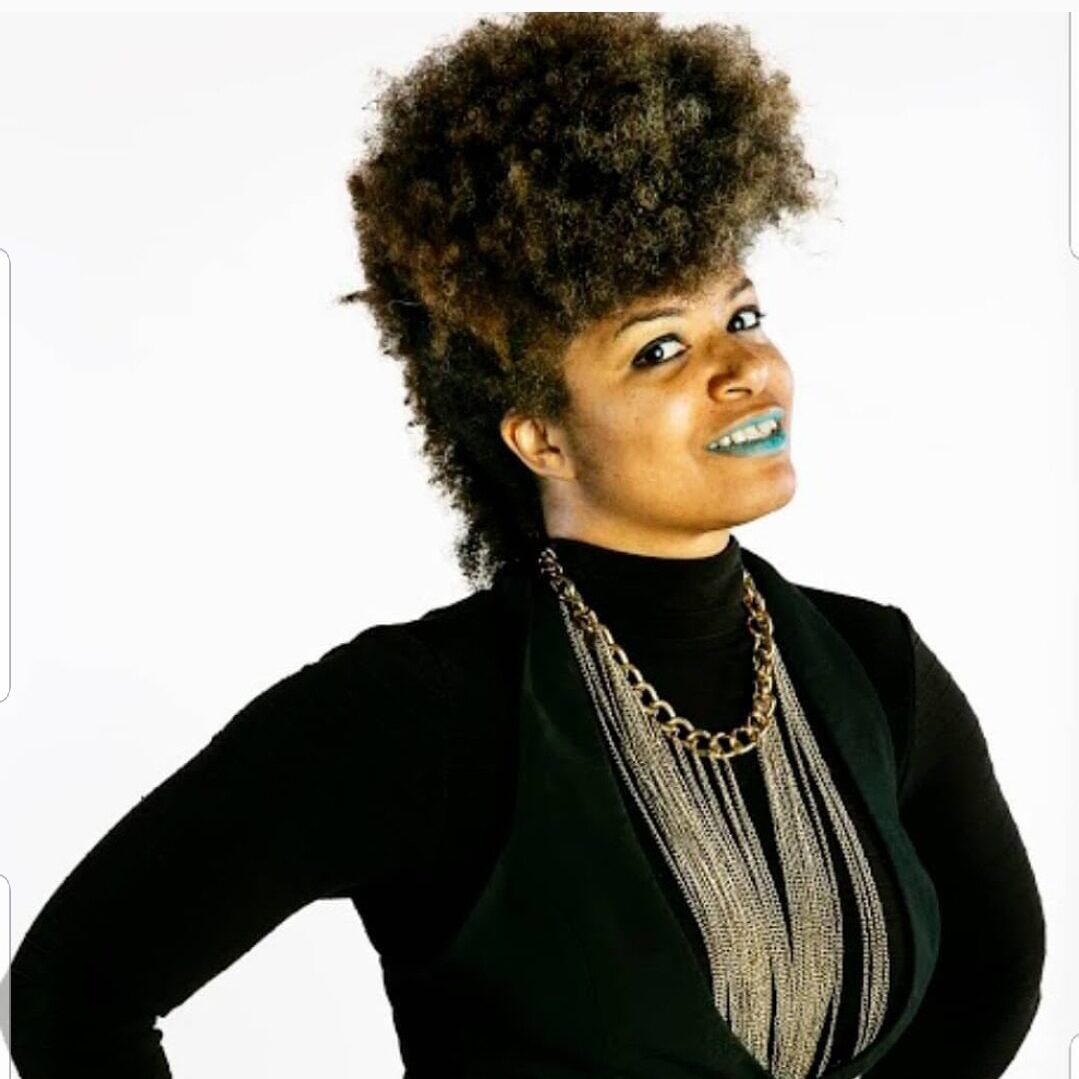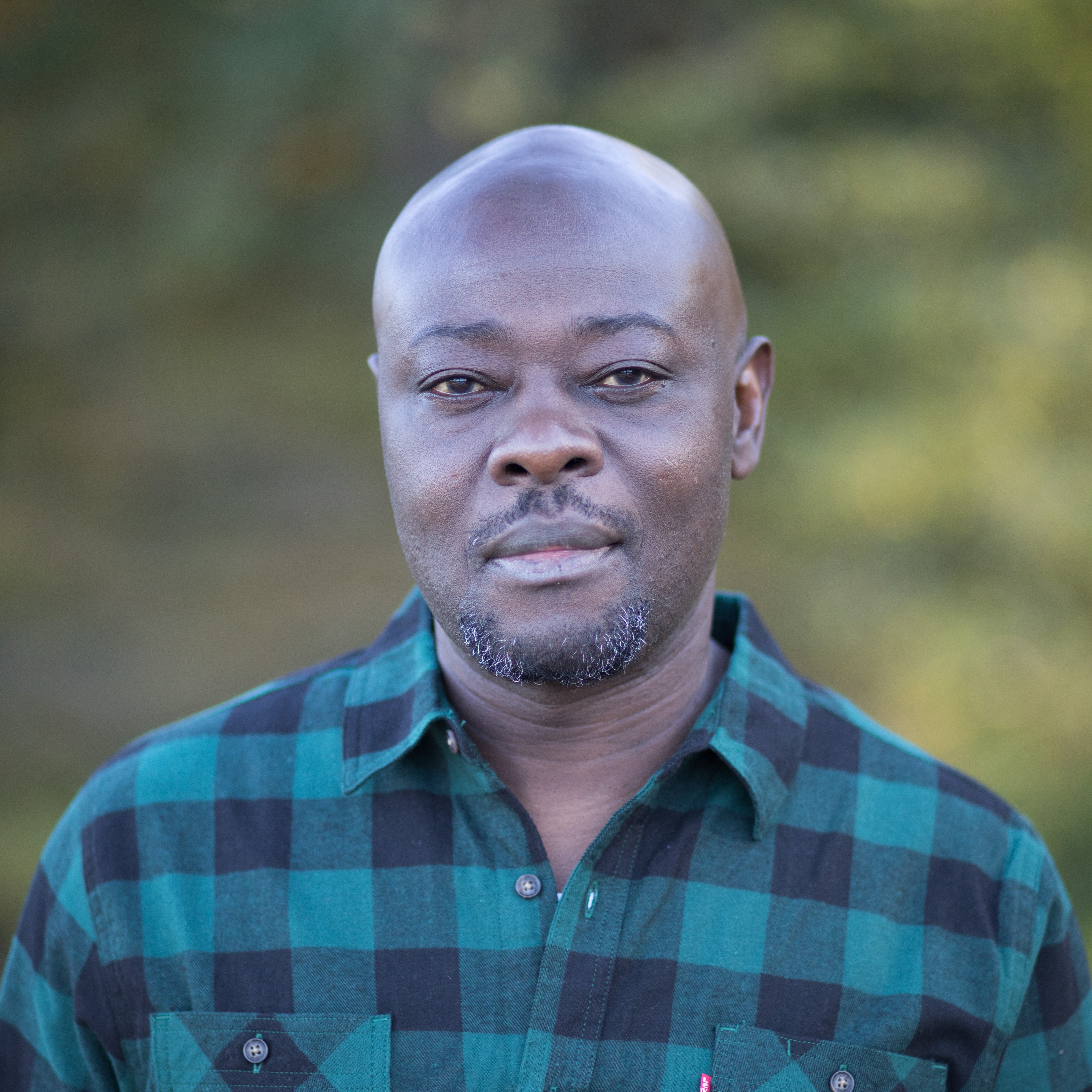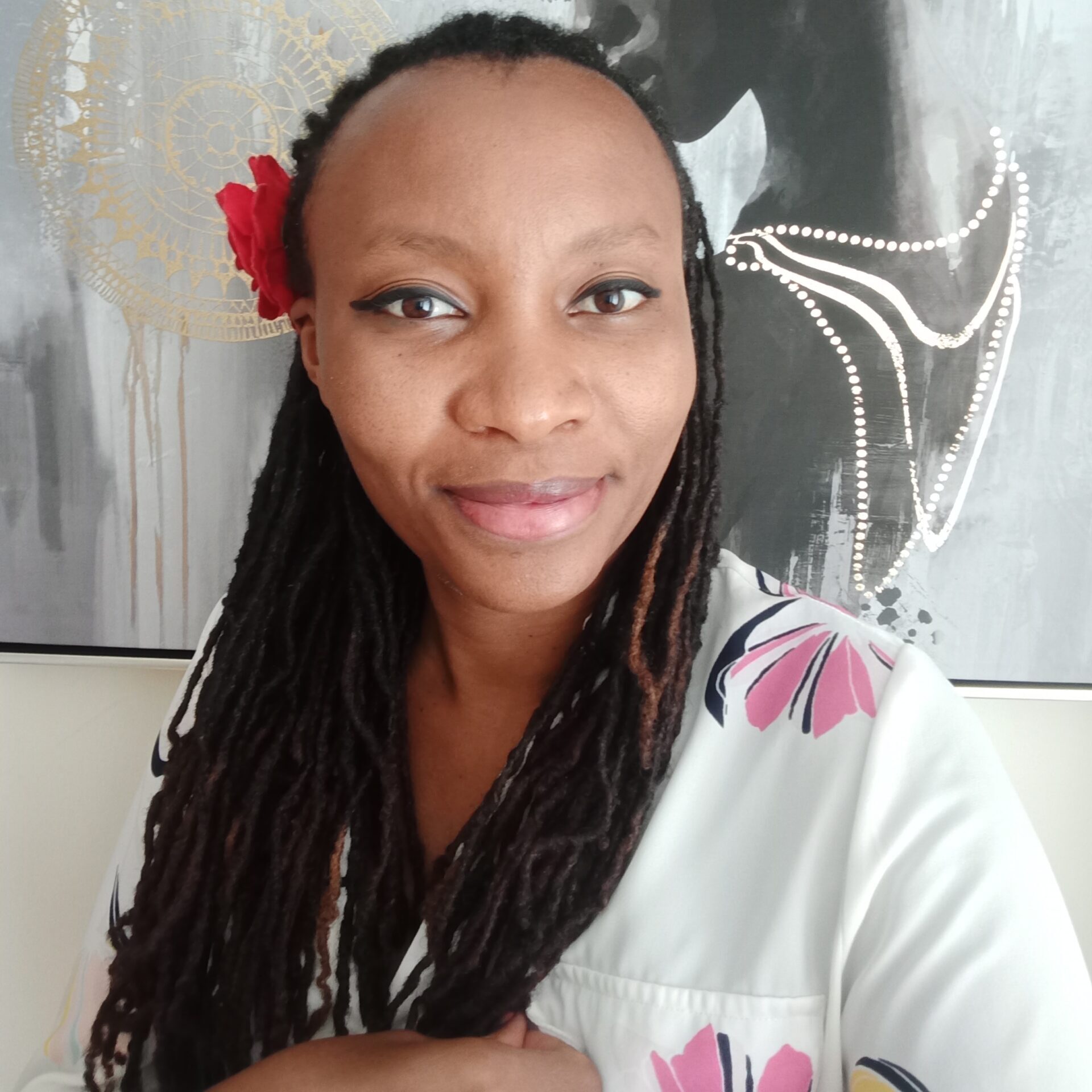



Africa@2050

What kind of Africa do you envision in 2050?
What future do you want and how do we create that future in the present?
At Africa@2050, we want to hear your story of the future.
Check out the Workshop
- Submit a Climate Fiction short story (max 1500 words)
- Be in to win cash prizes (£100 to £1000)
- Participate in a Climate Futures Workshop
- Feature in a COP26 fringe event!
- Deadline 18th June 23:59 Central Africa Time (UTC + 02)
Call to Action
The world is on fire. Under business as usual, scientists warn that by 2050 over half of the world could face water scarcity, unsafe levels of air pollution, and increasingly unpredictable weather events. The world is at a crossroads. If we act now, we have a unique opportunity to remake the world otherwise.
What future do we hope for? What future do we fear? If you could write any world into being, what world would that be?
The climate crisis is global, but it was not made and will not be felt equally. Africa is the continent that has contributed least to carbon emissions. Yet it stands to be most devastatingly affected by the effects of climate change, with limited resources to cope. Today, African perspectives on just transitions to a low-carbon world have never been more important.
That’s why we have launched Africa@2050. We invite short stories (max 1500 words) or poems (max 1000 words) to the Africa@2050 Climate Fiction competition. Tell us your stories of the future: what is your vision for Africa in the world in 2050? What challenges lie ahead, what dreams and hopes?
The Africa@2050 Competition: Terms & Conditions
- The competition is free to enter
- Submit your story of Africa@2050, as a short story (max 1500 words) or poem (max 1000 words). The story should broadly and creatively engage with the issue of climate change on the African continent, including (but not restricted to): climate justice; energy; carbon emissions, trading and capture; mining & rare earth minerals; water scarcity; electric transportation; agriculture & food security; extreme weather events; waste; toxicity; sustainability.
- Submit your entry here.
- Cash prizes: £1000 (winner), £500 (second prize), £300 (third prize), and shortlisted entries (£100).
- Submit your entry by 18 JUNE 2021, 23:59 Central African Time (CAT).
- You must be aged 18 or over, and be national or resident of the following sub-Saharan African countries: Angola, Benin, Botswana, Burkina Faso, Burundi, Cameroon, Cape Verde, Central African Republic, Chad, Comoros, Republic of the Congo, Côte d’Ivoire, Democratic Republic of the Congo, Djibouti, Equatorial Guinea, Eritrea, Ethiopia, Gabon, The Gambia, Ghana, Guinea, Guinea-Bissau, Kenya, Lesotho, Liberia, Madagascar, Malawi, Mali, Mauritania, Mauritius, Mozambique, Namibia, Niger, Nigeria, Réunion, Rwanda, São Tomé and Príncipe, Senegal, Seychelles, Sierra Leone, Somalia, South Africa, South Sudan, Sudan, Swaziland, Tanzania, Togo, Uganda, Western Sahara, Zambia and Zimbabwe.
- Your entry must be previously-unpublished work.
- Entries can be in any language, but, if not in English, must be submitted alongside a full English translation for the purpose of the competition. Only the English version will be evaluated for the competition. If selected, winning and shortlisted texts will feature in their original language texts alongside the English translation.
- You will retain copyright of the entry you submit. By entering the competition, you agree to have the entry featured on our website.
- In addition to cash prizes, winning and shortlisted participants will be invited to participate in a Climate Futures Workshop on June 30 2021. Winners and shortlisted applicants must be available to attend and contribute to the Climate Workshop following their award (to be held virtually on Zoom). Winners and shortlisted entries will be showcased on the website, and feature in a virtual COP26 fringe event in October 2021 at the Energy Ethics 2021 Conference ‘Energy Transitions & Planetary Futures’.
- Entries will be reviewed and shortlisted by an internal panel, and submitted to a panel of external judges for final review and award.
- Winners, runners-up and shortlisted applicants will be notified by email.
Competition Judges

Ytasha L. Womack
Author, filmmaker, independent scholar and dance therapist
Ytasha L. Womack is a leading expert on Afrofuturism and lectures on the imagination and its applications across the world. Her book Afrofuturism: The World of Black Sci Fi & Fantasy Culture (2013), a leading primer on the subject and is a 2014 Locus Awards Non-Fiction Finalist. Womack’s other books include A Spaceship in Bronzeville, Rayla 2212, Post-Black: How a new Generation is refining African American Identity (2010), and Beats, Rhymes and Life: What We Love & Hate About Hip Hop (2007). Womack’s Afrofuturist dance film “A Love Letter to the Ancestors from Chicago” (2017) won Best Experimental Film at the Collected Voices Festival and toured internationally. Womack was an inaugural resident at Black Rock Senegal, a writer-in-residence with WOW in Liverpool, a creative-in-resident at Kickstarter, and a writer-in-residence at Emerson College. Her graphic novel Blak Kube with illustrator Tanna Tucker debuts in 2023.

Helon Habila
Professor of Creative Writing at George Mason University

Makena Onjerika
Award-Winning Author
About Africa@2050
Africa@2050 is a project based at the Centre for Energy Ethics (CEE) at the University of St Andrews and the Centre for Climate Change and Sustainability Studies (C3SS) at the University of Ghana. It is funded by the Scottish Funding Council.
Featuring an online writing competition and a climate research workshop, the initiative brings together writers with researchers to collaboratively devise future-looking and innovative solutions to the challenges posed by climate change to the African continent and to the world at large. By foregrounding Africa@2050, we position Africa at the centre of global conversations and innovation and as a catalyst for climate action. We want writers to become leaders in re-imagining the world otherwise. In foregrounding the importance of imagining futures, Africa@2050 emphasizes possibilities for positive change, hope, and determination in facing the climate emergency.
Contact Us
For any questions, please email [email protected]
Or email competition organisers Dr Bob O. Manteaw [email protected] or Dr Pauline Destree [email protected]